Myanmar accused of 'foot-dragging' on repatriation as thousands of Rohingya wait on barren island
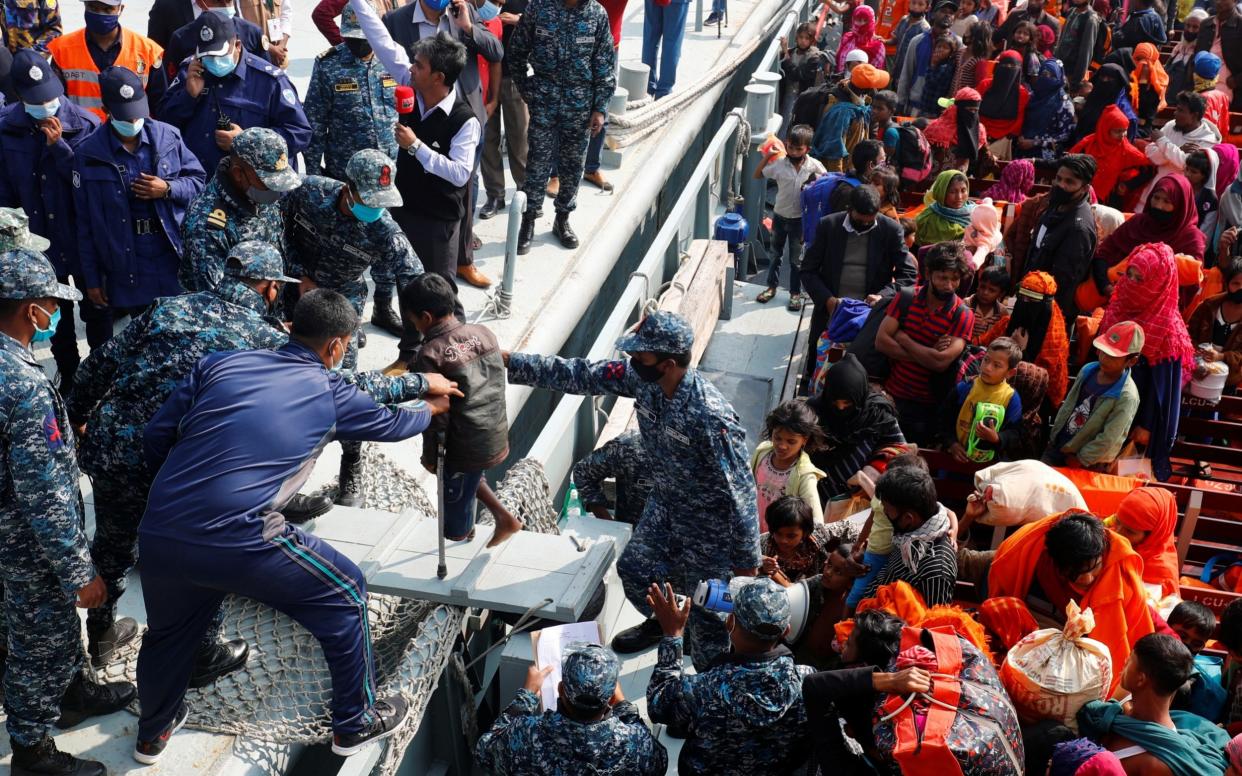
The days on the barren silt island of Bhasan Char in the Bay of Bengal have developed into a mundane rhythm for Fatima, a single mother with a teenage daughter, who was transferred there in December along with hundreds of Rohingya from the overcrowded refugee camps on the Bangladeshi coastline.
She spends her time going to the market, cooking and sitting. The grey breeze-block barracks on the island lack character or home comforts, but they are, she says, an improvement on the flimsy tarpaulin and bamboo huts in the sprawling camps that house more than a million people.
Despite concerns from human rights groups that the isolated island, over 18 miles from shore, will become akin to a “floating prison,” Fatima said she relocated voluntarily after her brother said those who moved there would be given priority for repatriation to Myanmar or relocation to a third country.
Senior Bangladeshi officials will meet their Myanmar counterparts in the capital, Dhaka, for the first time in a year on Tuesday to attempt to thrash out the details of sending hundreds of thousands of Rohingya home to Rakhine state, where they fled a murderous military-led campaign in 2017.
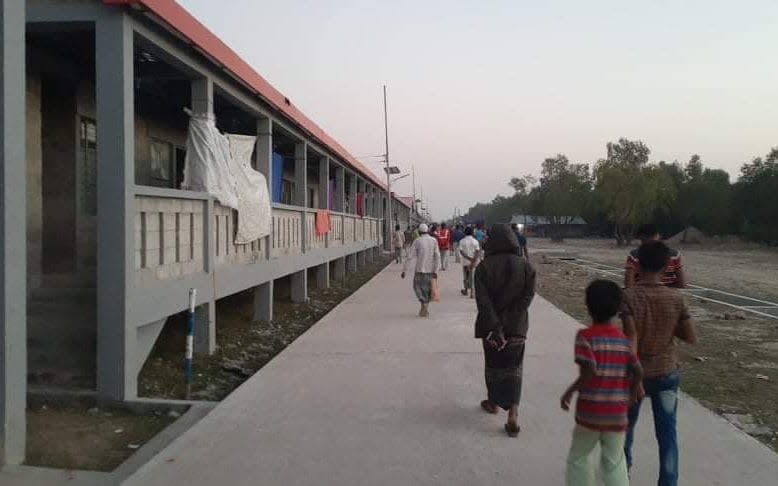
AK Abdul Momen, the Bangladeshi foreign affairs minister, said he hoped the meeting, mediated by China, would be “fruitful.” But prospects of a speedy resolution have so far been hampered by foot-dragging by Myanmar and refugees’ fears of returning to a hostile environment.
Humanitarian groups, who are vehemently against the plan to relocate some 100,000 refugees to Bhasan Char have raised concerns that Rohingya consent to move there may have been manufactured either through deprivations or false promises, both a form of coercion.
They have urged Dhaka to halt the “rushed” relocation process to allow an independent safety assessment and more consultation with refugees. International aid agencies also fear a big storm could overwhelm the island, which only emerged from the sea 20 years ago.
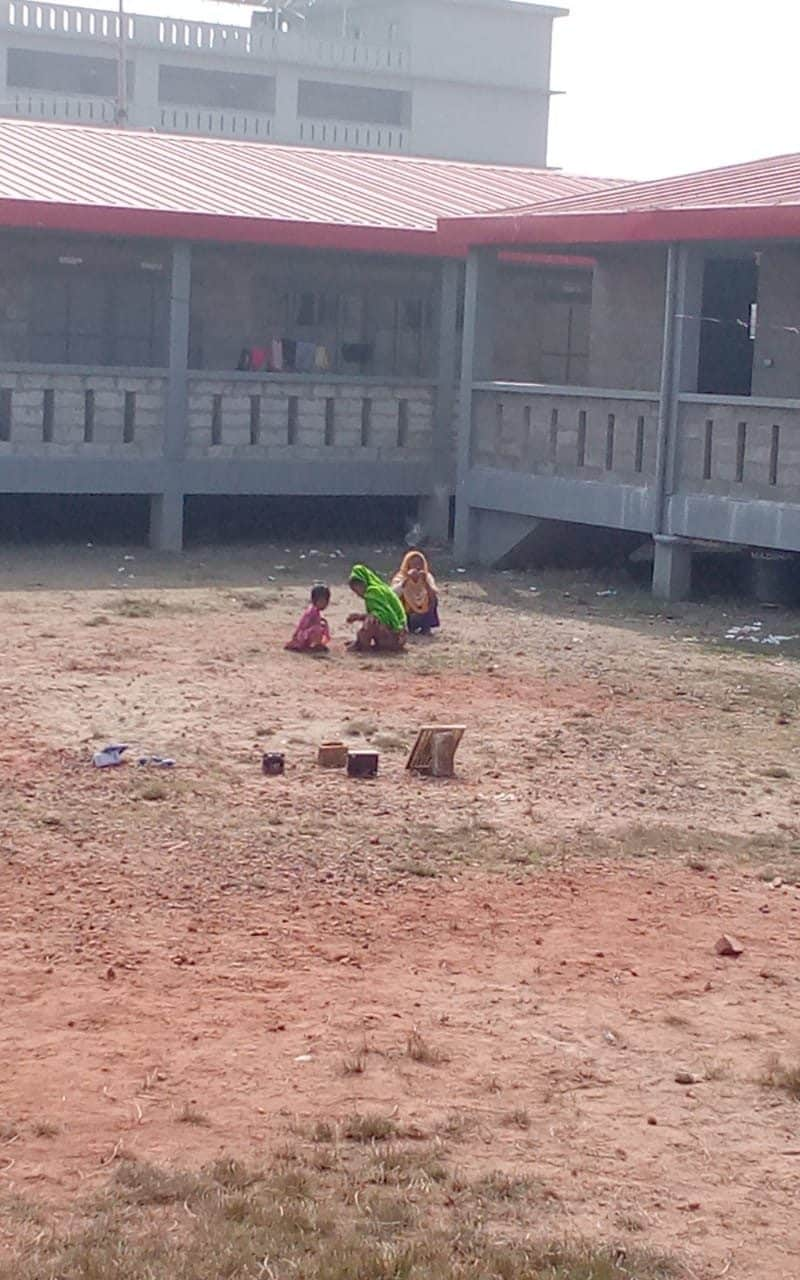
“We know some Rohingya were promised third-country resettlement if they agreed to go to Bhasan Char. They were lied to,” said Matthew Smith, chief executive officer of Fortify Rights.
“We know Rohingya on the island are not free to return to the mainland camps, further giving it the appearance of an island detention centre,” he said.
“Dhaka is failing to authorise United Nations assessments of the island and ignored our request to access it. This makes the island seem less like a genuine response to the needs of refugees and more like a perverse attempt to maroon genocide survivors.”
The accusations have been strongly denied by Mr Momen, who described Bhasan Char as a temporary shelter to prevent loss of life from landslides in the overflowing onshore camps, which are located on unstable sandy ground.
“Bangladesh should be applauded for arranging such decent living for persecuted people,” the minister told The Telegraph.

“No one was given assurance or lured to go to Bashan Char for a third country settlement, and none was lured or pressured. It was all voluntary, no coercion whatsoever.”
The minister expressed frustration that NGOs and the United Nations were not making more efforts convincing Myanmar to create a conducive environment for refugees to return.
He said UN agencies were allowed to go to Bhasan Char and had been invited there two years ago but had not yet finalised their “terms of reference” to visit.
A report by Fortify Rights on December 3, the day before Fatima and her family moved to the island, suggested misinformation about relocations had come from within the Rohingya community.
It cited examples of refugees being ordered by their Majhi – the name for an unelected camp leader - to go to the island, or of being told that they would be prioritised for repatriation or third-country relocation if they did so.
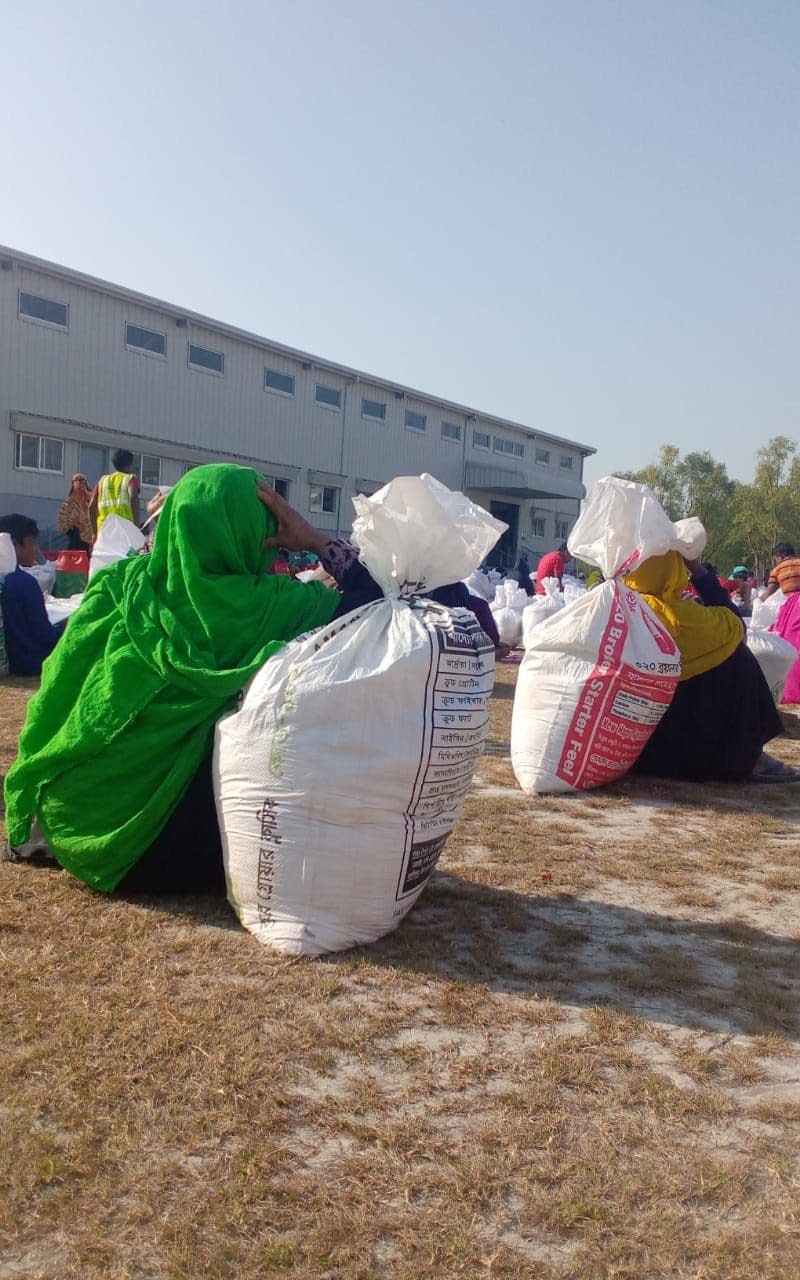
Fatima told The Telegraph she retains the hope that she and her family will not remain long on the island before a more attractive relocation offer appears. She tries not to contemplate the alternative.
Short term she said she was happier there than in the cramped Kutupalong and Nayapara camps near the fishing town of Cox’s Bazar on the mainland, which in recent months have been plagued by lethal gang violence and the threat of a massive Covid-19 outbreak.
Last Thursday, a devastating fire in Nayapara gutted more than 500 homes, leaving some 3,500 people with no shelter and bereft of what few possessions they had.
“People feel that it is better here than the Kutupalong camp..emotionally and physically,” she said. “People are calling their relatives to please come here and live in safety.”
Fatima sent photos showing sparse but clean accommodation, furnished with charpoy beds, showers and toilets and clean drinking water provided by shared outside pumps. Large families had been allocated two or three rooms, she said.
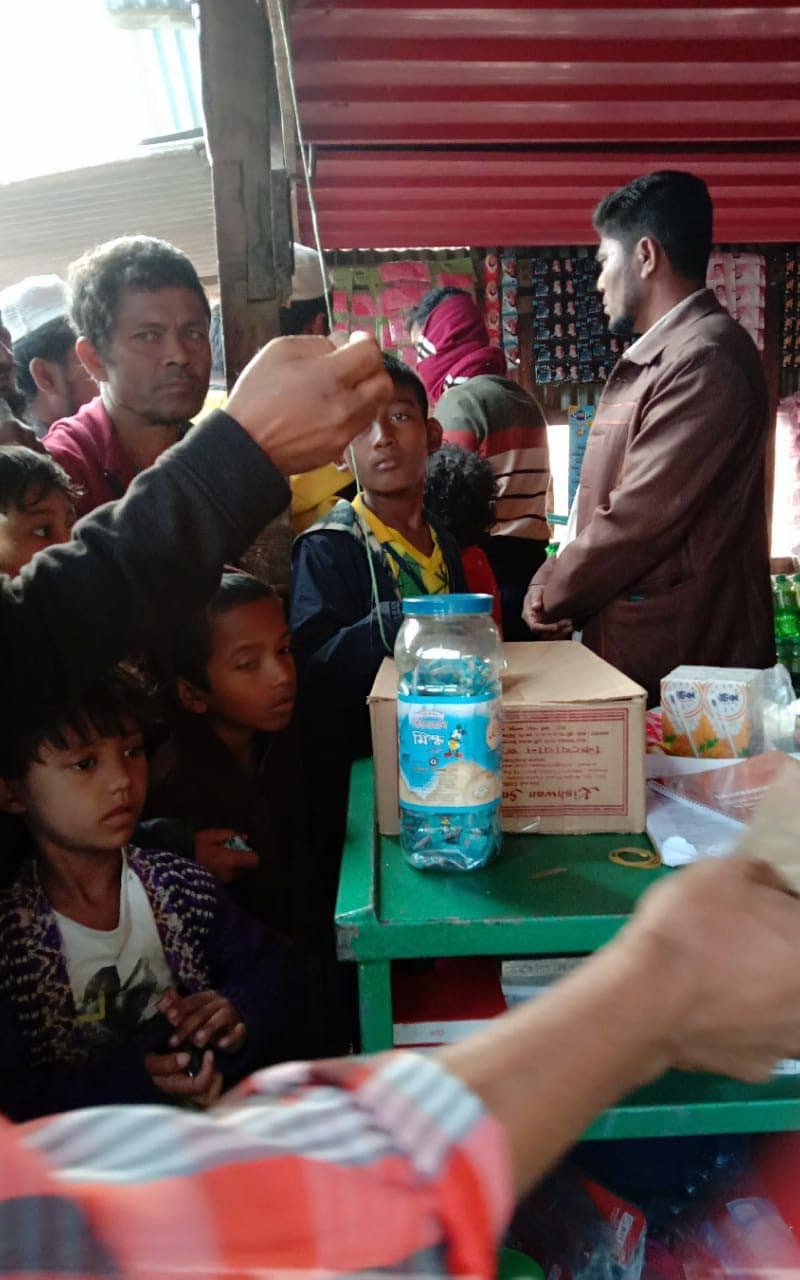
But although there were food rations, she said there were few jobs available to offer long term prospects for island inhabitants, although some are able to run shops or can tend to goats and buffalo. Many, however, pass the day playing football, fishing or going to the mosque.
Fatima herself was frustrated that she could not use the skills, including a good command of English, which had previously secured her jobs with international organisations in Myanmar. She has ambitions to open a counselling centre to help the many families suffering mental health issues.
As a widow, she said she longed to earn again to financially support her 14-year-old daughter. Schools have not yet opened, further dampening the teenager’s ambitions. “She wants to become a doctor, but she’s not getting that opportunity,” said Fatima.
But one of her biggest worries was the lack of healthcare facilities on the island. One of her relatives had taken a bad fall and was suffering fever but had been unable to get a proper check-up. “No blood pressure, heart or respiratory checks,” she said.
Last week, Fatima messaged anxiously about her own health – head pounding, wondering if she may need a hospital.
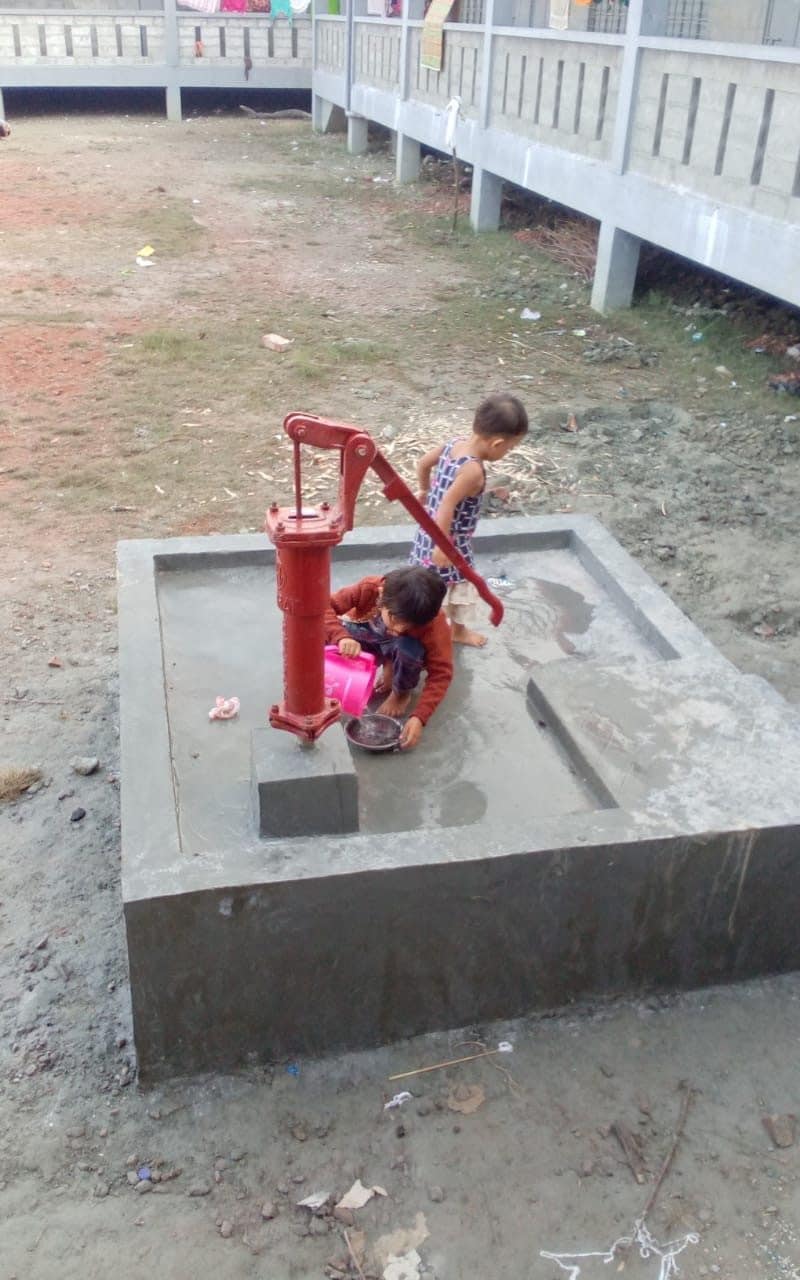
She recovered, but the lack of major healthcare facilities is one reason why NGOs have urged the government not to rush the relocation even if there are legitimate reasons ease the burdens on packed onshore camps.
Meenaskhi Ganguly, South Asia director at Human Rights Watch, said that while living conditions were generally better on the island, concerns remained over the lack of a proper technical evaluation and the upcoming monsoon.
“If there is a health emergency there will be a serious crisis because right now people have to be brought to the mainland. If the weather changes how are they even going to bring these people when the waves get high and the boats can’t go?” she asked.
“It seems that the government is in an unseemly hurry, as opposed to just going through the process.”
Long term, activists like Matthew Smith believe that “refugee realpolitik” means the Rohingya on the island may be faced with years of isolation.
“Rohingya should have a seat at the table, literally. Without the voices of Rohingya reflected in discussions about their future, and without fundamental changes on the ground in Myanmar, there's no meaningful prospect for safe, voluntary, and dignified returns anytime soon,” he said.
Fatima's name has been changed

